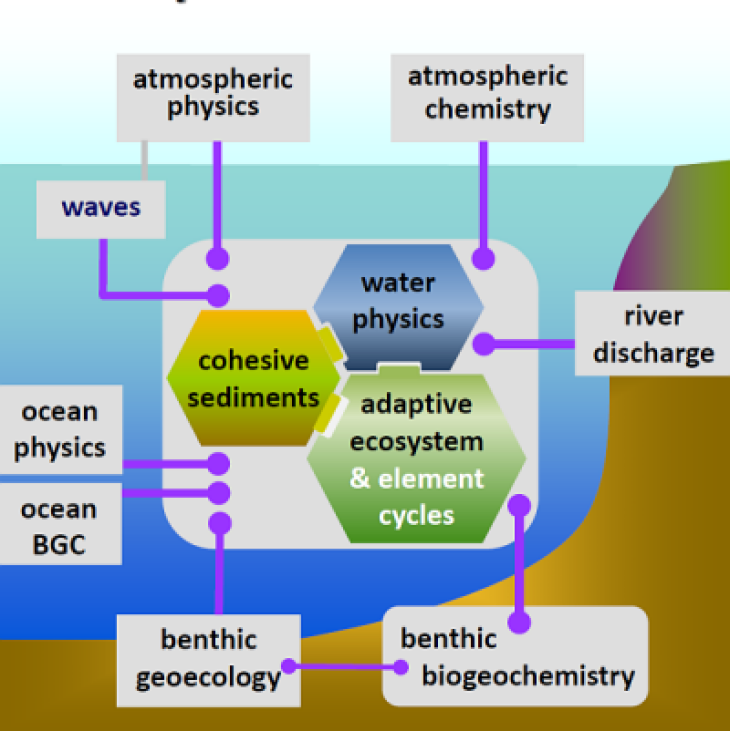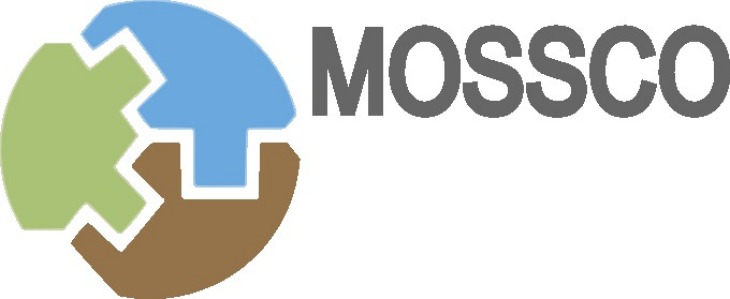Modular Coupling
The overarching goal our research topic "Modular Coupling" is to build a common reseach and decision support infrastructure for coastal research community, integrating physical, biological, chemical and geological simulation tools in an exchangeable way. This topic is represented by the Modular System for Shelves and Coasts (MOSSCO) project.

MOSSCO scheme (Graphics: Hofmeister/Hereon)
MOSSCO supports synoptic studies of coastal and shelf seas including their interfaces to adjacent Earth-system components, such as sediment, atmosphere, rivers and the open ocean. Benefits of this approach are most apparent for the description of cohesive sediments where strong interactions between the benthic and pelagic compartment and between hydrodynamic, biogeochemical (BGC), ecological and sedimentary processes are largely unresolved within state-of-the-art models.
MOSSCO is applied to cohesive sediment dynamics and transport problems on two spatial coastal scales: In an application to the entire German North Sea and Baltic Sea, we will demonstrate the modular concept of MOSSCO, study sediment fluxes along the coast, and support other FONA projects. In a study of two estuaries, we will focus on the impact of maintenance dredging and channel deepening on water quality and ecosystem services, including potential effects of climate change. Using a webGIS frontend of the modular system, the estuarine results will be evaluated for their compliance to coastal policies.


